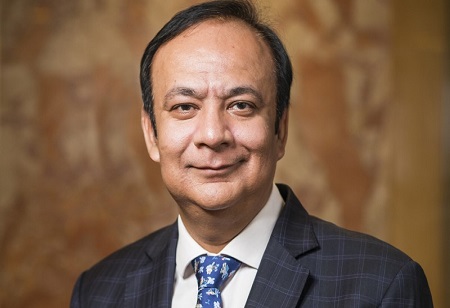
Anuj Kathuria, President (India), JK Tyre & Industries in an interaction with Industry Outlook shares his views on how the Indian Tyre industry is addressing the various challenges faced by the sector such as adopting new technologies to upgrade manufacturing processes, reduce costs, improve quality of the products and more.
The Indian tyre industry has been facing challenges in maintaining an adequate level of capacity utilization due to uneven demand across various vehicle segments. How can capacity utilization be optimized?
During the pandemic, there were challenges that the industry faced because the demand was not stable and it had come to very low levels, especially in the OEMs. However, now, the demand is back both in the OEMs as well as the replacement market. Therefore, I do not see a major challenge in capacity utilization. Going forward, we should expect the challenge of having spare capacity, we should not have any spare capacity and we will have to run our plant at full capacity.
The Indian tyre industry is vulnerable to the fluctuating prices of raw materials mainly rubber, which contributes 50% of a tyre’s cost. What can tyre manufacturers do to stabilize the price?
The raw material prices have been volatile, but off late thankfully, it has stabilized. Hence, it is no more as volatile as it used to be, but whenever the prices go up it gets difficult and it is not easy to manage such situations. We try to pass it on to the customer, but the customers are not ready to accept always. Therefore, we have to reach a trade-off that one has to do, some part of it we pass it on, some part of it we control through cost control measures, and some part we also negotiate better with our suppliers but at some point, we have to finally absorb and it reflects.
The Indian Government is taking steps to regulate environmental pollution and promote sustainable practices in the industry, but how is the tyre industry adapting to it? Therefore, to adapt to this, we are also working on our sustainability program, whether it is on the environmental side, where we are working on both the product and the process. On the process part, we are trying to ensure that we use greener sources of energy, we consume less energy, we conserve water, we use less water, and we are moving biomass against the conventional source of energy which is coal.
Therefore, a lot of measures are taken on the process side in order to find out how our products can be made or can have a larger percentage of alternate material or material that is easily biodegradable. Also, we are trying to see if we can use recycled material. The overall idea is to conserve the environment.
How is the tyre industry adopting new technologies to upgrade manufacturing processes, reduce costs and improve quality?
Various improvements are being done in manufacturing and one such is digitalization. We are working on connected machines, machines that can talk to each other and can provide information. We are also looking at how to get into a predictive model. This is because we do not want to wait for the event to occur and then try to rectify it but rather get to know before any failure occurs. Therefore, all these factors in my view will help us improve the overall efficiency as well as the quality of our products.
We use cookies to ensure you get the best experience on our website. Read more...